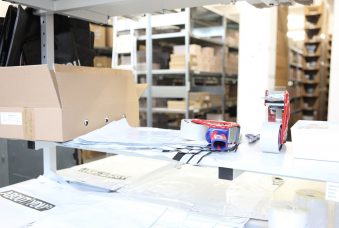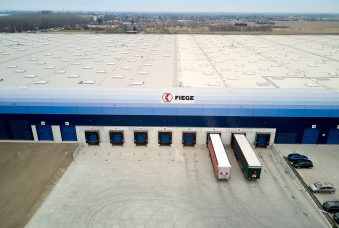Transport logistics with Fiege Climate Protection
Munich. Effective immediately, all clients choosing Fiege air, sea and road cargo transit have a climate neutral transport option. This makes the logistics company a climate action trailblazer within its sector.
This Fiege service is available nation-wide for its International Freight Forwarding division. On request, all clients can offset CO2 emissions from their transports. This is made possible with the help of an integrated tool by ClimatePartner: Emissions from a customer order are pro-rated according to the distance covered and weight or volume transported. Clients thus receive fully automatically an offer to offset CO2 emissions from their shipments.
Each client selects a climate action project it wishes to support to ensure the zero-emissions transportation of its cargo. In turn, the client receives a certificate which confirms CO2 compensation and identifies the chosen project.
“Our clients are increasingly interested in transportation services with a mitigated impact on the environment. Awareness regarding sustainability is growing by the day”, states Michael Völlnagel, CEO International Freight Forwarding at Fiege. “We as Fiege have been advocating climate preservation and environmental protection causes for a long time. For example, our foundation, the Josef Fiege Stiftung has been supporting social projects for more than 20 years, many of which focus on the conservation of nature.” Fiege has been driven to align economic and ecological interests for decades. Within Freight Forwarding, this has been a hot topic for many years. “This offer from ClimatePartner allows us to provide a further interesting service to our clients”, says Michael Völlnagel.
Fiege clients endorse high-value, internationally recognised climate action projects from the ClimatePartner portfolio with their climate-neutral transportation choices. Climate protection projects are key in fighting global warming by demonstrably reducing greenhouse gases. Forest conservation or the expansion of renewable energies are two possible solutions here.
In addition, climate protection projects promote sustainable development in the countries hosting those projects by means of, for example, improving the availability of clean drinking water or bolstering local infrastructures, creating jobs, and preserving biodiversity.




